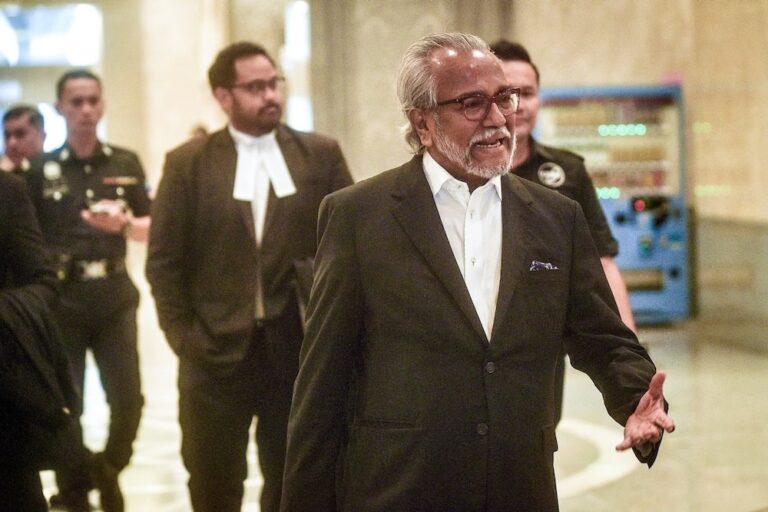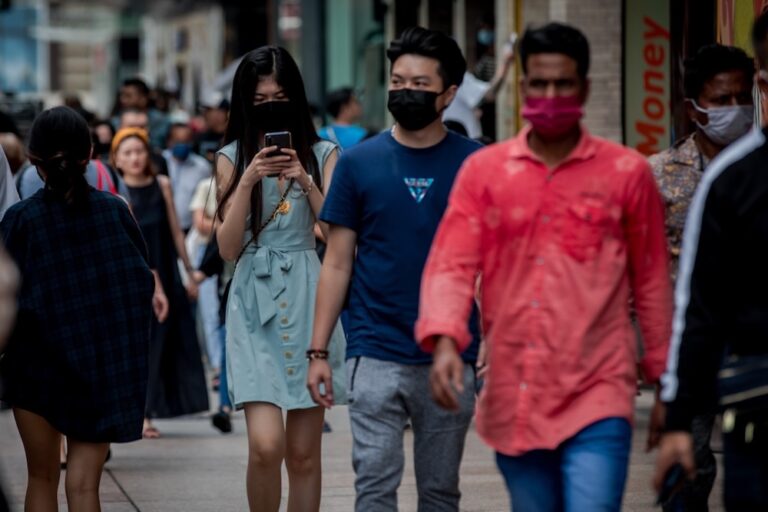(SEAPA/IFEX) – Malaysian’s Internal Security Ministry has instructed the local press to refrain from reporting about a banned rally in the capital Kuala Lumpur on 25 November 2007, which is seeking the Queen of England’s help in a class-action suit against Her Majesty’s government. At least one newsroom received the order from a ministry official […]
(SEAPA/IFEX) – Malaysian’s Internal Security Ministry has instructed the local press to refrain from reporting about a banned rally in the capital Kuala Lumpur on 25 November 2007, which is seeking the Queen of England’s help in a class-action suit against Her Majesty’s government.
At least one newsroom received the order from a ministry official by telephone on 22 November, an industry source, who requested anonymity for fear of reprisal, told the Centre for Independent Journalism (CIJ), a SEAPA partner based in Kuala Lumpur.
A similar gag order was issued over another rally held on 10 November, which saw thousands of Malaysians in a rare exercise of their right to assembly, to petition Malaysia’s Supreme Monarch for free and fair elections.
The press may well be compelled to obey the order again, bound as it is by the licensing conditions stipulated in the 1987 Printing Presses and Publications Act. The government, however, appeared not to have learnt anything from the previous restriction, which resulted in the mainstream media showing up poorly in the eyes of the thousands who were at the rally, and compared against the many reports, photographs and videos found in blogs and websites.
Ten thousand citizens of Indian ethnicity had been expected to gather on 25 November to submit a memorandum to the British High Commission, to support a class-action suit against Her Majesty’s Government for bringing Indians to Malaya (as Malaysia was called during British rule) two centuries ago as indentured labourers, and for failing to incorporate their rights in the country’s road to independence.
The suit was filed in September by the Hindu Rights Action Force (HINDRAF), which is organising the rally to petition the Queen of England to appoint a Queen’s Counsel to represent the Indians. They are seeking a quantum of RM14 trillion (approx. US$4 trillion) or US$2 million for each citizen of Indian ethnicity.
In a déjà vu of the 10 November rally, the government is pulling out all stops to prevent people from attending the HINDRAF rally, rejecting their application and the subsequent appeal for a gathering permit, and setting up roadblocks to seal off the city. Various top-ranking leaders and enforcement officers stressed the illegality of the rally.
On 23 November, police arrested three key figures of HINDRAF: lawyers P. Uthayakumar, Ganapathy Rao and P. Waythamoorthy. They were charged at the Klang Sessions Court under the 1948 Sedition Act, a much-abused antiquated law that allows a broad definition of sedition, an offence punishable by a three-year prison sentence or a fine of RM5,000 (approx. US$1,487), or both. All were granted bail of RM800 each (approx. US$237) and released the same day, except for Waythamoorty, who is refusing to post bail in protest of what he termed the government’s misuse of the police service.
Earlier, police had gone to Uthayakumar’s house to serve him a rare restraining order under Section 98 of the Criminal Procedure Code – applicable to urgent cases of nuisance, and effective for seven days from the date of issuance – banning him and all HINDRAF supporters from attending the rally, reports independent web-based daily “Malaysiakini”. However, the organisers have vowed to go ahead with their plans.
Police also raided the offices of Uthayakumar and Waythamoorthy on 19 November to search for an allegedly seditious booklet entitled “50 years of Violations of the Federal Constitution by the Malaysian Government”.
On 12 August, around 2,000 HINDRAF supporters gathered at the administrative capital Putrajaya to deliver a memorandum to Prime Minister Abdullah Ahmad Badawi to protest their continued marginalisation in the country dominated by the ethnic Malays who form half of the 24 million population. Indians form approximately seven percent; the Chinese, 23 percent; and various indigenous groups, 11 percent.


